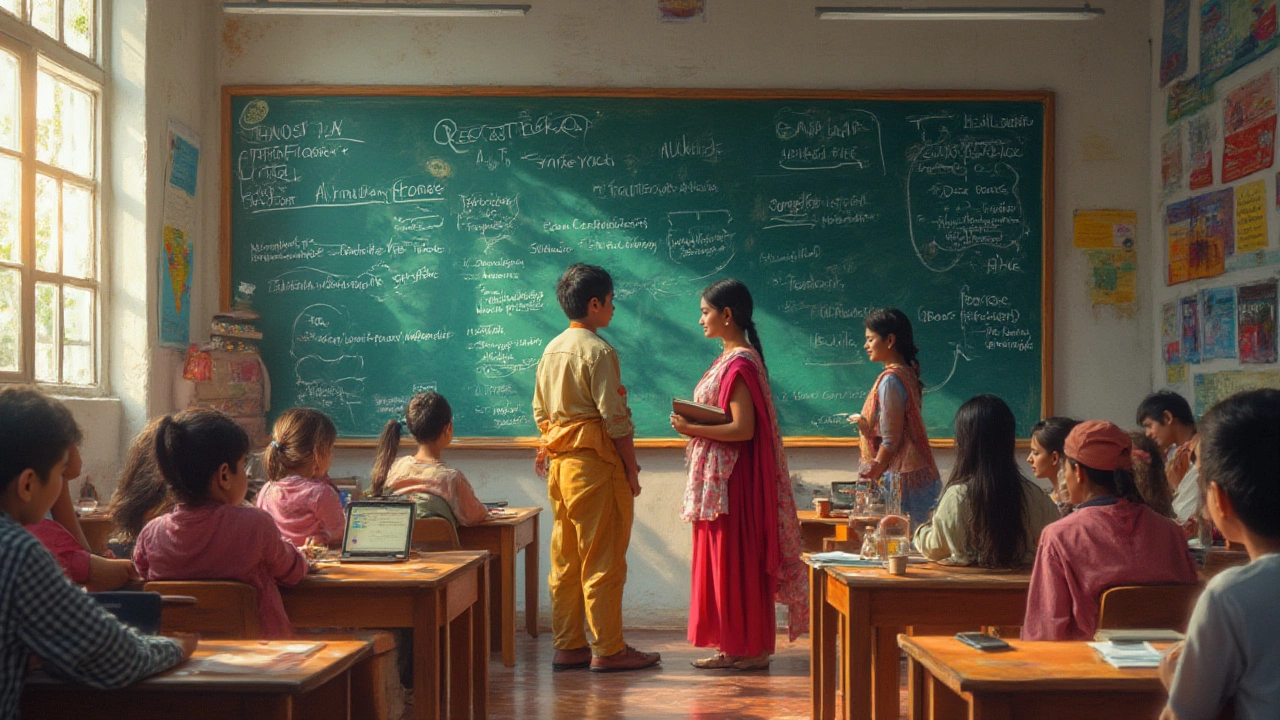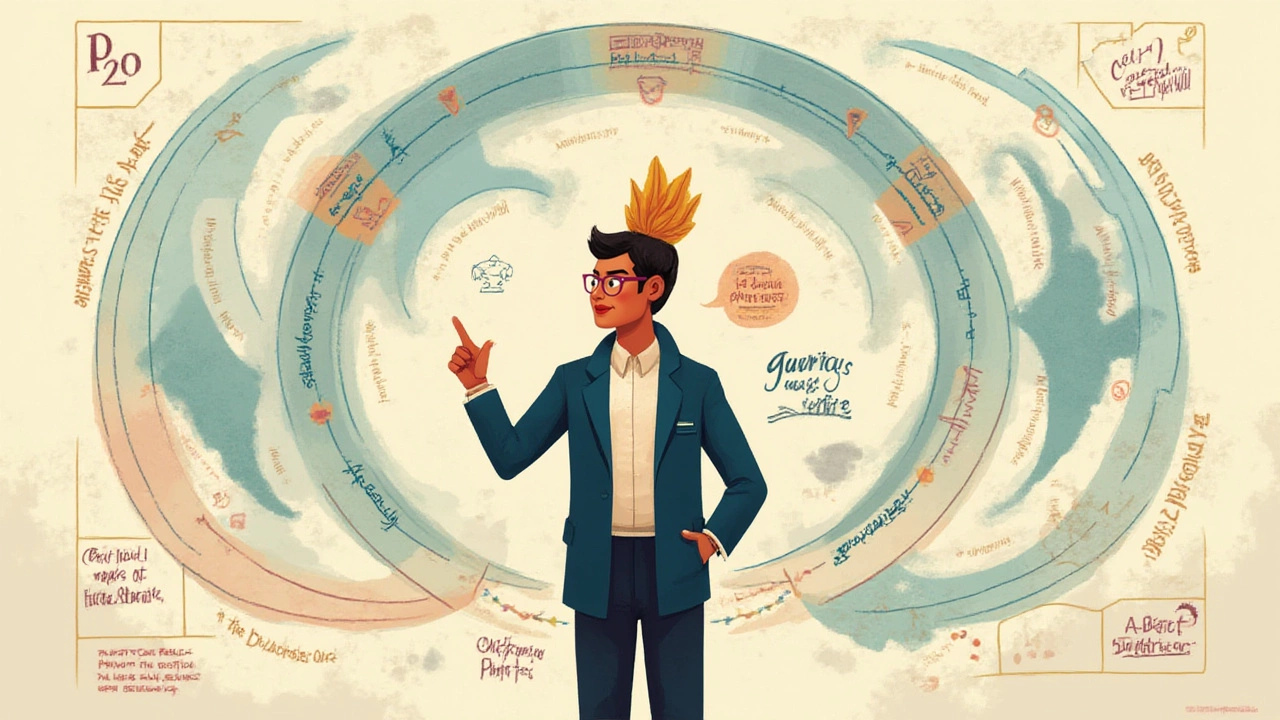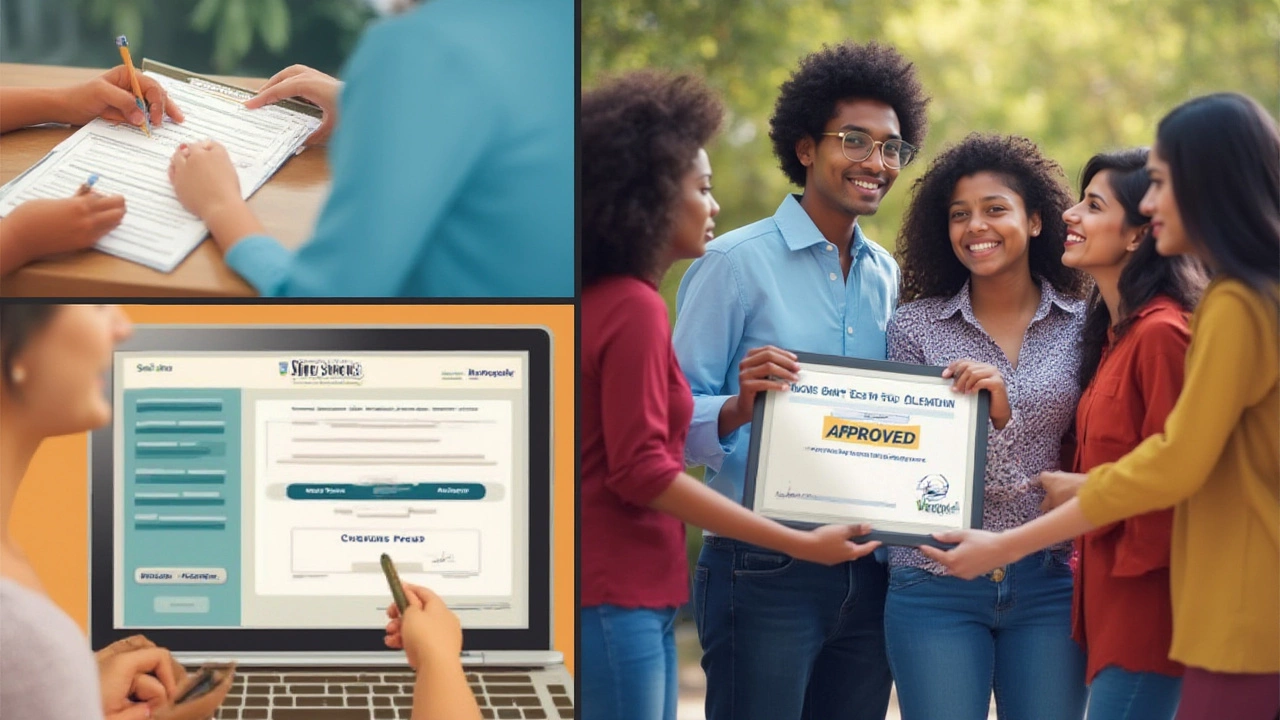Step-by-Step Guide to Getting Your Virginia Teaching Certificate

If you’ve ever dreamed about running your own classroom in Virginia, you’re not alone—and you’re facing a process that’s a bit of a maze. Virginia’s public schools have a reputation for both high standards and teacher support, so it’s no surprise the route to certification is detailed. But here’s a fact: in 2024, Virginia saw over 8,000 new teachers certified. With teacher shortages making headlines, districts are hungry for new talent. If you’ve got the dedication, this journey will absolutely pay off, both for your career and the kids who’ll look up to you every day.
Understanding Virginia's Certification Types
You don’t want to head down the wrong road right at the start. Virginia offers several teacher licensure types, and choosing the right one is the first major step. Most folks start with the Collegiate Professional License, which requires a bachelor’s degree and a state-approved teacher prep program. But there’s also the Provisional License—perfect for career switchers or people who haven’t yet completed all coursework but want to teach while finishing up. If you already have out-of-state certification, Virginia has options for reciprocity—no need to start from scratch. There’s also the Career Switcher License, which has become increasingly popular in recent years with folks leaving business or tech for the classroom. Each path demands specific coursework and, sometimes, teaching experience.
If you’re asking yourself who exactly gets which license, here’s a quick way to tell: Fresh college grads usually go for the Collegiate Professional. Already teaching with experience in another state? That’s the reciprocity track for you. Mid-career changer with a degree but no education major? The Career Switcher or Provisional might be your ticket. Remember, Virginia regularly updates requirements—so always double-check the Department of Education website for the latest options, especially with recent policy changes around teacher shortages and expedited licensing.
Let’s clear up a myth: You don’t need a master’s to get started in Virginia, but it can help you snag higher pay right out of the gate. And for specialized roles like special education or school counseling, there are added criteria and endorsements. Another useful fact: over 90% of new Virginia teachers opt for the standard licensure through a traditional teacher prep program, but alternative routes are growing each year, especially in hard-to-fill subjects like math and science.
Requirements Every Applicant Needs to Meet
The checklist may look long, but it’s pretty clear once you break it down. Before you can even think about teaching, the state wants proof that you’ve got both the academic background and the practical skills to handle a classroom. First up, you have to earn a bachelor’s degree from an accredited institution—that’s non-negotiable. Next, you’ll need to finish a state-approved educator preparation program. This usually includes both classes in teaching methods and a classroom internship or student teaching stint.
The next hurdle: standardized exams. Most people power through three main ones:
- Praxis Core Academic Skills for Educators (CORE): Tests basic math, reading, and writing.
- Praxis Subject Assessment: Focuses on the specific subject or grade level you plan to teach.
- Virginia Communication and Literacy Assessment (VCLA): Zeroes in on reading and writing skills, with a Virginia twist.
Passing scores matter—no shortcuts here. Still, some applicants have exemptions, like earning high enough SAT or ACT scores, so always check if you qualify to skip one of these tests.
But wait, there’s another step that often surprises people: the Child Abuse Recognition and Intervention Training and the Dyslexia Awareness Training. You have to complete these, and the modules are free and available online. Since 2023, Virginia also requires a hands-on, evidence-based reading instruction training (thanks to a big push for literacy improvement). Getting fingerprinted and passing a background check is the last gate before your application goes into review. They’re not just checking for anything criminal—they also flag unresolved issues from past employment with children.
Here’s a quick reference table showing typical requirements:
| Requirement | Details |
|---|---|
| Bachelor’s Degree | From an accredited college or university |
| Teacher Preparation Program | State-approved, includes student teaching |
| Licensure Exams | Praxis Core, Subject Assessment, VCLA |
| Background Check | Fingerprinting and criminal background screening |
| Special Trainings | Child Abuse, Dyslexia Awareness, Reading Instruction (as of 2023) |
Something else: If you want extra endorsements (like English as a Second Language or Gifted Education), you’ll need coursework or experience in that area, too. And if you’re military, Virginia’s Troops to Teachers program fast-tracks some of these steps and even waives some fees for veterans—worth checking out if you qualify.

The Full Certification Process—Step by Step
Alright, paperwork time. The process follows a logical order, but the details can trip you up if you’re not careful. Here’s how it usually plays out:
- Make sure your bachelor’s degree transcripts are in order (they need to be official copies sent directly from your school).
- Finish your educator prep program or Career Switcher program, if you’re on the alternative route.
- Take and pass all required exams. Schedule them ahead—testing centers can book up months in advance, especially in spring.
- Complete the required training modules (the online ones usually give you a certificate of completion—don’t lose it!).
- Get fingerprinted at a state-approved location. Most school districts have preferred vendors, so ask early.
- Assemble your application packet. It needs to include your transcripts, exam scores, training certificates, proof of completed program, a completed application form, and the processing fee (usually $100 in 2025).
- Mail or submit online to the Virginia Department of Education; some applicants qualify for easier online uploads now, but paper is still common.
- Wait for the review. The Department usually takes about 8–10 weeks—but peak hiring seasons can make it longer.
- If approved, you’ll get your license by mail or email. This opens the door for you to get hired in any Virginia public school district (and some private ones).
One tip: If you already have a job lined up, most school districts will accept a provisional contract while your paperwork processes—as long as everything else checks out. And if you’re moving from another state, keep in mind that sometimes additional coursework or testing might be required for full reciprocity. Don’t forget, licenses must be renewed every five years. That means regular professional development hours, which schools often help you arrange during teacher workdays.
If you run into snags at any stage, most universities have licensure officers or counselors whose full-time job is helping would-be teachers navigate the red tape. Use them. Similarly, online support groups for teachers in Virginia can be gold mines for tips on acing the VCLA or gathering the right paperwork quickly.
Shortcuts, Common Mistakes, and Pro Tips
Getting a teaching certificate in Virginia isn’t exactly a sprint, but some smart moves can smooth the ride. Here’s a wild stat: more than 20% of applications in 2023 got delayed because of missing transcripts or incomplete exam documentation. Seriously, double-check every piece of paper before submitting.
If you’re not a recent college grad, ask about course substitutions or credited experience. Veteran teachers and career switchers sometimes overlook credits or jobs that could count toward requirements. The Virginia DOE has guides on what counts—but university advisors usually know the shortcuts no one talks about publicly.
Avoid the "test trap": scheduling exams too late in the process can delay your start by months. The Praxis and VCLA exams are notorious for taking weeks to return scores. Schedule them earlier than you think you need. Most people don’t know that Virginia lets you retake failed sections—but there’s a mandatory waiting period, which can push you back if you wait until the last minute.
Don’t scan official transcripts yourself. Have them sent directly to the DOE. Self-scanned docs are a leading cause of application holdups. For background checks, the state’s system updates fast, but only if you use an approved vendor. If you’re doing the process while already working in a school district, ask HR about covering some fees—they often will, especially in high-need locations. Another little-known tip: some school districts sponsor foreign language speakers for provisional licenses, because there’s a serious shortage in Spanish, French, Mandarin, and ASL. If you fit that bill, ask about it during your interview.
On renewals: You’ll need professional development hours—Virginia says at least 180 clock hours every five years. That’s actually easier than it sounds because districts usually offer workshops, online classes, or even let summer institutes count. Hang onto every attendance certificate; you’ll need them to renew on time.
Don’t forget to check for statewide grants or tuition reimbursement, either. In 2024, the state brought back funding for student teachers in high-demand areas like STEM and special education—worth thousands if you’re eligible. Local districts add scholarships for bilingual teachers or those working in rural schools.

After Certification: Starting Your Virginia Teaching Career
Once you’re certified, the real adventure begins. Virginia’s school districts are diverse, from busy city settings in Northern Virginia, to the military-heavy Hampton Roads, to tight-knit rural towns in the Blue Ridge. Public school salary ranges in 2025 are pretty wide: entry-level teachers with a standard license can expect $46,000 to $58,000 a year, depending on location and education level. Teachers with a master’s degree or endorsements can see even more. Recent stats show an average teacher salary of about $61,000 statewide, though large districts sometimes pay above that to start.
New teachers aren’t just thrown to the wolves. Most Virginia districts offer year-long mentoring for rookies, plus built-in professional development. The state keeps class sizes capped—especially in lower grades—to make your first year manageable. But don’t be surprised by packed schedules, especially if you’re in a subject with a shortage; many new teachers double up on duties as club advisors or coaches for extra pay.
If you’re looking ahead, Virginia schools reward experience and higher education fast. Every five years, as you renew your license, you’ll see automatic bumps for completing professional development and getting advanced degrees. Considering whether to get additional endorsements? Special Ed, ESL, and STEM get you both more options and sometimes signing bonuses because of the demand in 2025.
Here’s something that might surprise you: nearly 30% of Virginia teachers move into school leadership within a decade. So if you’re aiming for the principal’s office, or want to coach new teachers, this is a state that nurtures ambition as much as stability. And with five major teacher associations, you’ll never lack for networking and support.
The demand for teachers—especially in science, special education, and languages—is only going up. Maybe you’re jumping in because you want to make a difference, or maybe you’ve seen the job security public education offers, even when economies dip. Either way, your Virginia teacher certification is the ticket. Don’t let the paperwork throw you off. The moment you step in front of that first class and call roll for the first time, you’ll know you did the right thing.